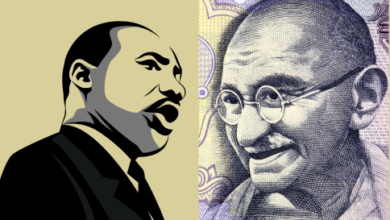The establishment of the United Nations International Day of Peace is an extraordinary story of determination, shared vision, and hope for humanity. It is a tale already more than 40 years in the making with many twists and turns and a cast of characters worthy of a historical epic. It is however a story that has remained largely untold, only revealed in part and rarely has the whole story been gathered in one place.
This is why UNITY EARTH in partnership with PURPOSE EARTH is so excited to be bringing some of the major visionaries involved in creating “Peace Day” together on Saturday Night Alive this September 18th in a show “celebrating Peace Weekend and the International Day of Peace”.
This year marks the 40th anniversary of the UN resolution in 1981 declaring the “International Day of Peace” and setting it on the 3rd Tuesday of September, at the opening of the General Assembly each year.
This 1981 resolution was an important milestone for the peace movement globally, and was the result of the works of a number of legendary peace-builders including Asst. Secretary-General Robert Muller and Ambassador John McDonald. One of the central figures in this extraordinary history is Avon Mattison who had dedicated her life to advocating for a “World Peace Day” commemorated through the United Nations. Avon’s lifelong dream for a universal Day of Peace goes all the way back to her childhood experiences in World War II. Avon’s working relationships with Asst. Secretary-General Robert Muller and Amb. John McDonald and others proved pivotal in the establishment of the resolution and helped her organization Pathways To Peace initiate the first local/global observation & celebration of the International Day of Peace.
Avon was the co-founder of Pathways to Peace, a prominent NGO dedicated to “building a sustainable culture of peace”. Today “Pathways” continues its critical role in increasing worldwide participation in Peace Day. We are so delighted that Avon Mattison will be a featured guest on the Saturday Night Alive special on September 18th this year!
Following the 1981 resolution the International Day of Peace spent two decades sliding around the month of September, usually around the third week. Having the date not fixed proved to be something of a disadvantage in getting broader recognition and regular observance of the day in broader civil society, outside of the UN system.
Enter Jeremy Gilley, founder of Peace One Day. Jeremy, a Brit, was an actor and filmmaker who, unfamiliar with the existing UN Peace Day, set out to create one himself. His amazing and effective advocacy is captured in his celebrated documentaries Peace One Day and The Day After Peace. Jeremy’s efforts led to the 2001 U.N. resolution that forever fixed the date of the International Day of Peace to be September 21 each and every year.
We are excited that Jeremy Gilley is also joining Avon and other luminaries for the special broadcast on September 18th, on Saturday Night Alive!
Since the date was fixed to September 21, twenty years ago this month, the International Day of Peace has been observed by hundreds of thousands of civil society organisations all over the globe. Jeremy’s organisation Peace One Day has measured the number of people who are aware of this day at 1.5 billion and their singular focus is to double this number to 3 billion over the coming 5 years.
Another guest on the show is Reverend Deborah Moldow, Director of the Evolutionary Leaders who for many years advanced the observance of the International Day of Peace at the U.N itself. Rev. Moldow explains “the International Day of Peace is an outstanding example of the power of partnership between the United Nations and civil society working together over four decades to advance the cause of peace on Earth.”
The idea of Peace Weekend goes back to the 1980’s when Avon and her colleagues established civil society observances around the International Day of Peace (IDP), usually on the preceding weekend in September. In 2020 Peace Weekend (September 19-21) was celebrated as the culmination of UNITY EARTH’s Caravan of UNITY and the idea of a global holiday weekend around the IDP every year is growing ever stronger.
Joining us musically for this historic show celebrating Peace Weekend and the International Day of Peace is Grammy Award winning fourpiece Opium Moon who will be performing music from their stunning new album live in L.A. Also on the show will be Pir Shabda Kahn and his wife Tanam, both world-class Sufi musicians. Pir Shabda Kahn is the global head of the Dances of Universal Peace. We will be blessed as well with the uplifting music of Erik Rabasca (Lighwarriors) and the spoken-word genius of Baba Israel.
Rounding out the luminaries on the show is global intellectual Jonathan Granoff, founder of the Global Security Institute and Ambassador Mussie Hailu of the United Religions Initiative.
On this auspicious occasion of the 40th anniversary of the 1981 original resolution and the 20th anniversary of the 2001 resolution that forever fixed the date of the International Day of Peace, we invite you to join with us, on this historic coming-together of key architects, peace-builders, visionaries and wayshowers to celebrate Peace Weekend and the International Day of Peace.
We are so indebted to Avon, Jeremy and all the peace-builders that have led to the establishment of the International Day of Peace. Looking around the world today, it is clear that we need this day and all it represents, more than ever.
Ben Bowler
Executive Director
UNITY EARTH






